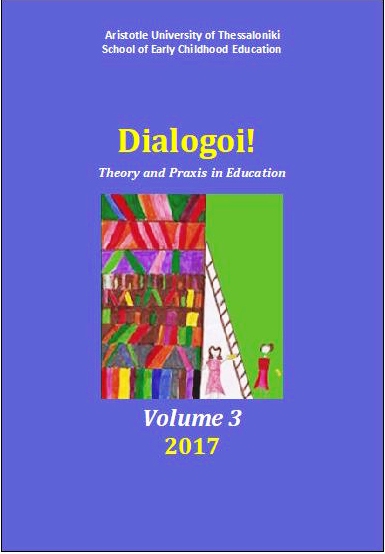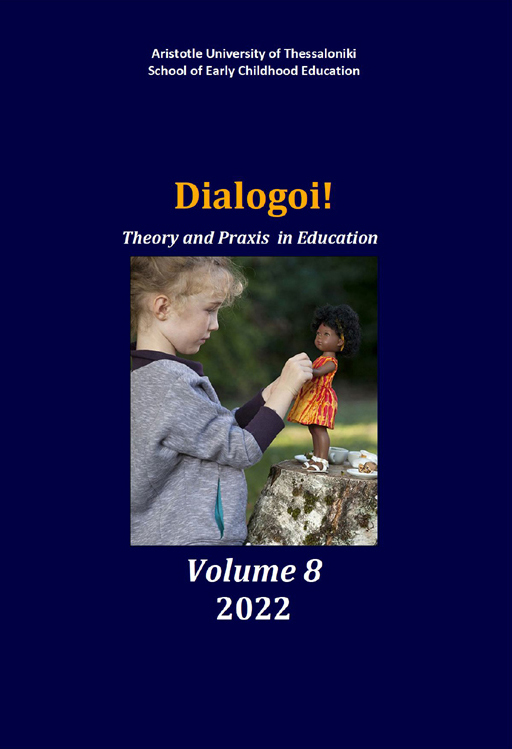TOCSIN project: Dimensions and impact of the greek economic crisis upon early childhood education

Abstract
Introduction: The financial crisis in Greece has had a heavy impact on the socio-economic status of Greek society during the past seven years. Such changes are shrinking incomes, increased taxes and unemployment which lead systematically to increasing poverty. Particularly, Eurostat (2014) indicates that more than one third of Greek people is under the poverty line. Therefore Greece is categorized as the one of the European countries with the highest percentage of poverty, following Bulgaria and Romania. Unfortunately, poverty reflects on Greek families with children as the most tragic victims. Parental unemployment usually causes negative emotions to the family members, constraints on entertainment and joint family activities and fewer opportunities for learning activities. On the other hand, the teachers’ role becomes especially important during periods of crisis when weaker social groups are affected. Teachers need to explore and diagnose the educational context and all the factors that relate to it, so as to look for solutions that will allow children to learn and develop.
Purpose of the study: The basic concept of the “Teacher suppOrt Confronting Social Inequalities” (TOCSIN) (conducted after received funding from the [EEA] Mechanism 2009-2014 under Project Contract n° 3708) (see www.tocsin.uth.gr) is to study the consequences of the escalating economic crisis upon vulnerable populations in early childhood education schools. TOCSIN aims to record and analyze existing issues and difficulties that children face during their early childhood schooling experience in the context of social and income inequalities in Greece, and their practices to confront them.
Method: Online questionnaires (specifically designed for the purpose of the study) were administered to 316 school principals and vice-principals of early childhood education schools mostly from the broader prefectures of Attika, Thessaloniki and Magnesia. Data were collected for 20.758 students enrolled in public schools, 5.688 preschoolers and 15.070 1st, 2nd and 3rd grade elementary students. The study complied with ethics and was conducted after written consensus from the Hellenic Ministry of Education was received.
Results: According to the results, 10% of the early childhood population is already affected by the crisis very seriously, lacking the basics for an uninterrupted school attendance. Unemployment has also affected one in five families. Overall, the most seriously affected by the economic crisis are students’ participating in school activities such as school excursions, museum and theatre visits and in extra curriculum activities. More than half of the principals reported difficulties in students diet and dress. Cut-downs in the cost of stationary, communication with other welfare organizations and bodies (such as Church) were reported as the most frequent measures in coping with the effects of crisis.
Conclusions: The results indicate that the economic crisis has profoundly affected the schools’ capacity to connect with children’s lives. It’s also difficult to think how modernization in education, as set within the European Union priorities could take place under those circumstances.
Article Details
- How to Cite
-
Kakana, D., Garagouni-Areou, F., Theodosiou, S., Manoli, P., Mavidou, A., Roussi-Vergou, C., Chatzopoulou, K., Αndroussou Α., Avgitidou, S., & Tsafos, V. (2016). TOCSIN project: Dimensions and impact of the greek economic crisis upon early childhood education. Dialogoi! Theory and Praxis in Education, 2, 78–102. https://doi.org/10.12681/dial.10535
- Issue
- Vol. 2 (2016)
- Section
- Varia

This work is licensed under a Creative Commons Attribution-NonCommercial-ShareAlike 4.0 International License.
Authors who publish with this journal agree to the following terms:
- Authors retain copyright and grant the journal right of first publication with the work simultaneously licensed under a Creative Commons Attribution Non-Commercial License that allows others to share the work with an acknowledgement of the work's authorship and initial publication in this journal.
- Authors are able to enter into separate, additional contractual arrangements for the non-exclusive distribution of the journal's published version of the work (e.g. post it to an institutional repository or publish it in a book), with an acknowledgement of its initial publication in this journal.
- Authors are permitted and encouraged to post their work online (preferably in institutional repositories or on their website) prior to and during the submission process, as it can lead to productive exchanges, as well as earlier and greater citation of published work (See The Effect of Open Access).




